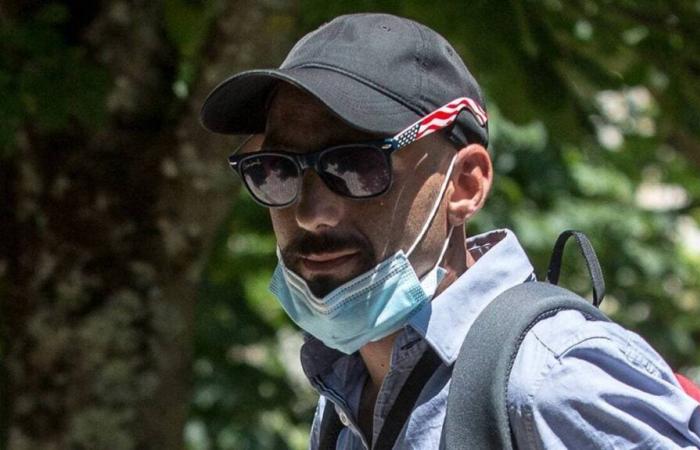
Without a doubt, this will be one of the most anticipated trials of the year 2025: that of Cédric Jubillar who will be tried before the Tarn Assize Court, in Albi, for the murder of his wife, Delphine Jubillar, a 33-year-old nurse who disappeared on the night of December 15 to 16, 2020, in Cagnac-les-Mines.
This Tuesday, during a preparatory meeting organized by the Toulouse Court of Appeal with defense lawyers and civil parties, it was envisaged that the trial would be held towards the end of September for a duration of four at five weeks. Potentially, “from September 22 to October 10, 2025”, according to Me Philippe Pressecq, lawyer for a cousin of Delphine Jubillar. The location, however, remains to be specified. Will the relatively small Albi judicial court be able to host a trial which promises to be closely followed by the public and the media?
“Everything is contested. We will obviously call numerous witnesses and experts,” indicates Jean-Baptiste Alary, one of Cédric Jubillar's lawyers. “As everything is discussed, it is a very detailed analysis that will have to be made of this file”, stressed Me Alexandre Martin, another lawyer for the accused, to AFP.
“It’s only you”
According to the prosecution, there are multiple elements suggesting that Cédric Jubillar killed his wife. This 37-year-old plasterboard painter was aware that she – determined to divorce – had a lover. On the evening of the disappearance, the couple's eldest son, then aged 6, saw his parents arguing and heard his mother say: “Stop!” ». Neighbors, around 11 p.m., heard screams of fear possibly coming from the Jubillar house. Another element in the case: the couple's car changed direction during the night, according to the police and neighbors.
“She didn’t go to do Jihad […] Nor with Jehovah's Witnesses […] She didn't meet a prowler […] There's only you”, had tried to make him crack a chief warrant officer in police custody. But nothing. Cédric Jubillar has always denied the crime and claimed to have discovered the disappearance of his wife – whose body was never found – a little before 4 a.m. on December 16, 2020.
From now on, the accused's lawyers still hope to obtain the conditional release of their client (detained for three years and five months) between now and the trial: “We are still looking for accommodation,” concedes Me Alary, hoping to convince the judges to release him. This eventuality is however unlikely, according to Me Pressecq. In cases where the penalty incurred is more than twenty years' imprisonment, pre-trial detention can last up to three years, or even four years. Furthermore, the Code of Criminal Procedure mentions that from the moment an accused has been referred to court, and if he is already in pre-trial detention, “the person concerned remains detained until his judgment by the Assize Court”, without, however, excluding the possibility of requesting release.





